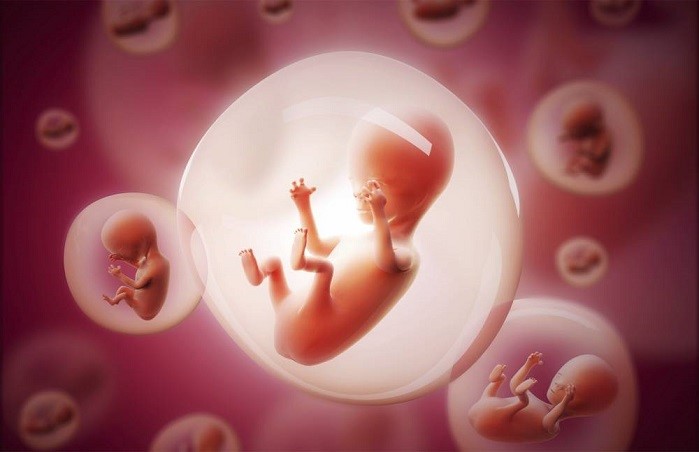For nearly a decade, I have been trying to warn pro-lifers about the advent of genetically-modified, designer babies. Society’s total blind acceptance of creating human life in the laboratory en masse with IVF has now brought us to this very precarious point. Scientists in China have taken left-over IVF embryos and tried to edit their DNA with a new promising gene-editing technique called CRISPR. It was not a success.
Nature has the story:
In a world first, Chinese scientists have reported editing the genomes of human embryos. The results are published1 in the online journal Protein & Cell and confirm widespread rumours that such experiments had been conducted — rumours that sparked a high-profile debate last month2, 3 about the ethical implications of such work.
In the paper, researchers led by Junjiu Huang, a gene-function researcher at Sun Yat-sen University in Guangzhou, tried to head off such concerns by using ‘non-viable’ embryos, which cannot result in a live birth, that were obtained from local fertility clinics. The team attempted to modify the gene responsible for β-thalassaemia, a potentially fatal blood disorder, using a gene-editing technique known as CRISPR/Cas9. The researchers say that their results reveal serious obstacles to using the method in medical applications.
“I believe this is the first report of CRISPR/Cas9 applied to human pre-implantation embryos and as such the study is a landmark, as well as a cautionary tale,” says George Daley, a stem-cell biologist at Harvard Medical School in Boston, Massachusetts. “Their study should be a stern warning to any practitioner who thinks the technology is ready for testing to eradicate disease genes.”
CRISPR has the ability to do much good in existing patients with genetic disease. Using CRISPR technology researchers have been able to introduce precise gene editing to plant, animal and adult human cells. CRISPR could be the answer to the problem of bringing gene therapy to patients who need it.
Many researchers rightly want to limit CRISPR to just that: helping patients who are living with genetic disease. Scientists have been warning us for a while to get ready for research where CRISPR is used to edit the genomes of human embryos right after fertilization. Even the woman who developed CRISPR is asking for a moratorium on its use in human embryos.
The ethical problems using CRISPR in human embryos are numerous. First, as the Chinese scientists found out, editing the genome of an embryo will likely have unforeseen and undesirable effects. The New York Times reports on the the unsuccessful attempt to edit the DNA of 85 IVF embryos:
The Chinese researchers did not plan to produce a baby — they used defective human embryos — but did hope to end up with an embryo with a precisely altered gene in every cell but no other inadvertent DNA damage. None of the 85 human embryos they injected fulfilled those criteria. In almost every case, either the embryo died or the gene was not altered. Even the four embryos in which the targeted gene was edited had problems. Some of the embryo cells overrode the editing, resulting in embryos that were genetic mosaics. And speckled over their DNA was a sort of collateral damage — DNA mutations caused by the editing attempt….
The Chinese researchers point out that in their experiment gene editing almost certainly caused more extensive damage than they documented; they did not examine the entire genomes of the embryo cells.
It is clear there will be unintended consequences if CRISPR or other gene editing techniques are used on embryos. Those unintended consequences will not stop at the child that is created. Any modifications to an embryo at such an early stage will be incorporated into their reproductive cells. This means that they will pass on their modification to further generations.
So modifying embryos is not simply about the child that is created, but it will affect every generation after. Using CRISPR in human embryos means experimenting on future generations, an ethical line that many feel should never be crossed. The question is do we really have the moral authority to make such important health decisions for multiple generations that never gave consent?
And I have no doubt that once we get comfortable editing the DNA of our future children for health reasons, we will certainly move on to using such technology to design the child of our desires.
Huang is not the only scientist trying to edit the genes of embryos. There are at least four other groups in China working on it. Eventually they will try the technique on normal IVF embryos donated for research. A voluntary moratorium is not enough. The United States and China need to follow the lead of many other countries and legally ban germ-line genetic modifications because of the danger to future generations.
Instead of using CRISPR to introduce risky modifications to our children, grandchildren and great grandchildren without their consent, we should use it to combat genetic disease in existing patients that need it. Much more ethical and much less dangerous.








